Inside Nigeria’s Deadly And Destructive Kingship Tussles
Crises over thrones are tearing communities apart in Southwest Nigeria without an end in sight.
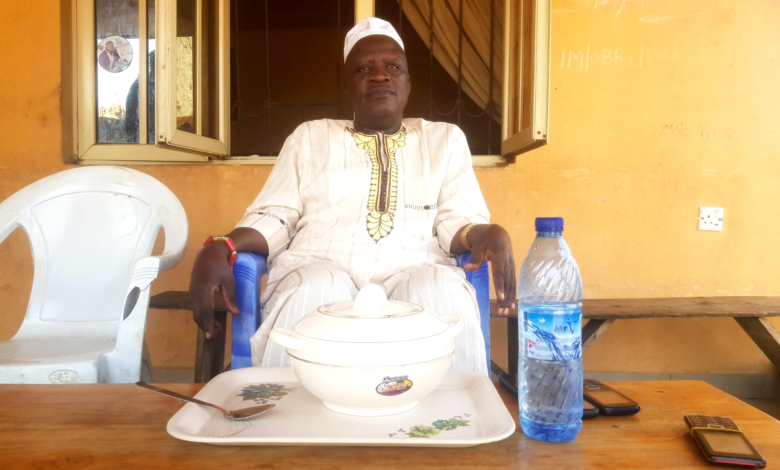
Olatunji Lukmon was killed while defending the gate of his traditional ruler’s palace, during an outburst of violence that has put Osun state on alert.
The 43-year-old was gunned down as he and other residents of Ikirun, 20 kms north east of State capital Osogbo, tried to prevent supporters of a controversial monarch take control of the seat of the Akirun.
The assault on the palace in November last year was triggered by suggestions that the man announced as the next title-holder should be removed before the rites that confirm his position can be completed.
In the weeks that followed, members of the kingmaking council fled their homes, and fear has taken hold among residents that the violence could spread.
Yinusa Akadiri was announced as the next Akirun in November 2021. But a protracted battle, first in the courts and then in the streets, has prevented him from taking his seat.
In November last year, a group of men loyal to Akadiri tried to force their way into the palace. But a group of Ikirun residents, including Lukmon, locked the gate and held it shut to show their displeasure with how Akadiri was selected as their traditional ruler.
In the gun battle that followed, Lukmon died instantly. Many others sustained gunshot injuries.
Three houses
The Akinrun stool became vacant in Feb. 2021, following the death of Olayiwola Adedeji, who had served as monarch for 30 years.
According to indigenes and kingmakers, there are three ruling houses entitled to produce monarchs in Ikirun: the Oba-ara, Adedeji, and Gboleru, who are supposed to take turns in providing title-holders.
The last monarch, the late Adedeji, took over from Lawani Adeyemi of the Oba-ara family in 1991, it was expected the throne should come to the Gboleru house.
But the proclaimed-monarch, Yinusa Akadiri, is from the house of Oba-ara. This jumping over the Gboleru has ratcheted up the tension.
Lukmon himself was from the Gboleru family.
The choice of an Oba-ara family member came about because Kingmakers became frustrated with the Gboleru’s indecision at who they wanted to succeed the throne.
Eight months after the demise of King Adedeji, the Gboleru family was accused of “not showing seriousness” as they searched for a successor amid internal disagreement.
“We knew it was the turn of the Gboleru ruling house, but they refused to submit names of their candidates,” said Lawal Kareem, president of the kingmakers in Ikirun.
This was refuted by Mudasiru Olatunji, spokesperson of the Gboleru family, who claimed that 14 names of candidates interested in the throne were submitted to the kingmakers.
But Kareem argued that the family should have reduced the candidates to a three-man shortlist to make screening and selection easier.
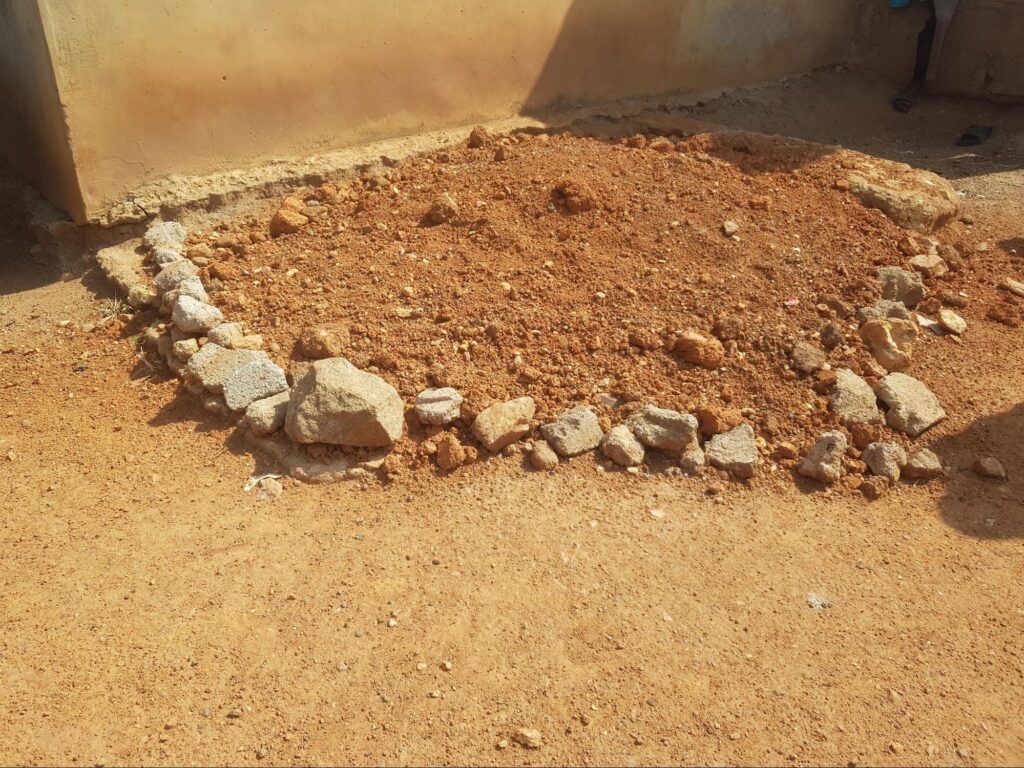
Unending throne conflicts
Kingship conflicts are common in the Southwest, and the stakes can be very high.
Different communities in Southwest Nigeria have, for decades, descended into conflict over the appointment of kings. The traditional status is highly coveted. Aside from being custodians of culture, monarchs are regarded as next to gods in Yorubaland.
Even in smaller communities headed by Baales (community heads), there is usually a tussle among interested persons, with many indigenous people becoming victims.
Those contesting for the positions frequently hire violent criminals or gangsters as muscle. Locally people call them “hoodlums” or “thugs”.
Even when innocent people are not killed, they can be forced to flee the troubled towns, their houses burnt down during violence.
A victim of such an incident, Sodiq Agboola, told our reporter that he ran away from his house in Ikirun after his house was targeted.
“I could not wait because my house was targeted by the hoodlums working with Akadiri. I was one of those agitating that law and order be respected but this angered those supporting Akadiri. They had to destroy my house. I fled to Osogbo with my family.”
HumAngle learnt that one of the major triggers for such crises is corruption, as ambitious princes bribe kingmakers to support less qualified candidates. Government interference with a society’s long-standing customs of crowning a new king also stirs violence.
There was violence during a kingship tussle in Irele, Ondo state, in 2013 when kingmakers performed the final coronation rites for a new monarch. While some attendants returned home with injuries, many properties were vandalised.
There was also a crisis in Lagos in 2017 as residents accused government officials of attempting to impose a non-indigene on them as their king in Orugbo-Iddo, a community in the Ikosi-Ejirin Local Council Development Area.
Last September, at least three people were killed in the violence that erupted over the kingship stool in Agosasa in the Ipokia area of Ogun state. Five others sustained injuries and many properties were destroyed as well. Similar incidents have been documented in Oyo and Ekiti states, showing how peace could easily be replaced by violence when kingship issues are not well handled.
The controversy
In Ikirun, following the alleged delay of the Gboleru ruling house to produce a successor, Justice Babajide Folola of the Osun State High Court reportedly ruled in Nov. 2021 that Gboleru should present a candidate within 14 days, or lose the seat to the next ruling house.
The family’s spokesperson, however, claimed that the state government did not wait for the two-week ultimatum to lapse before it moved to the Oba-ara family.
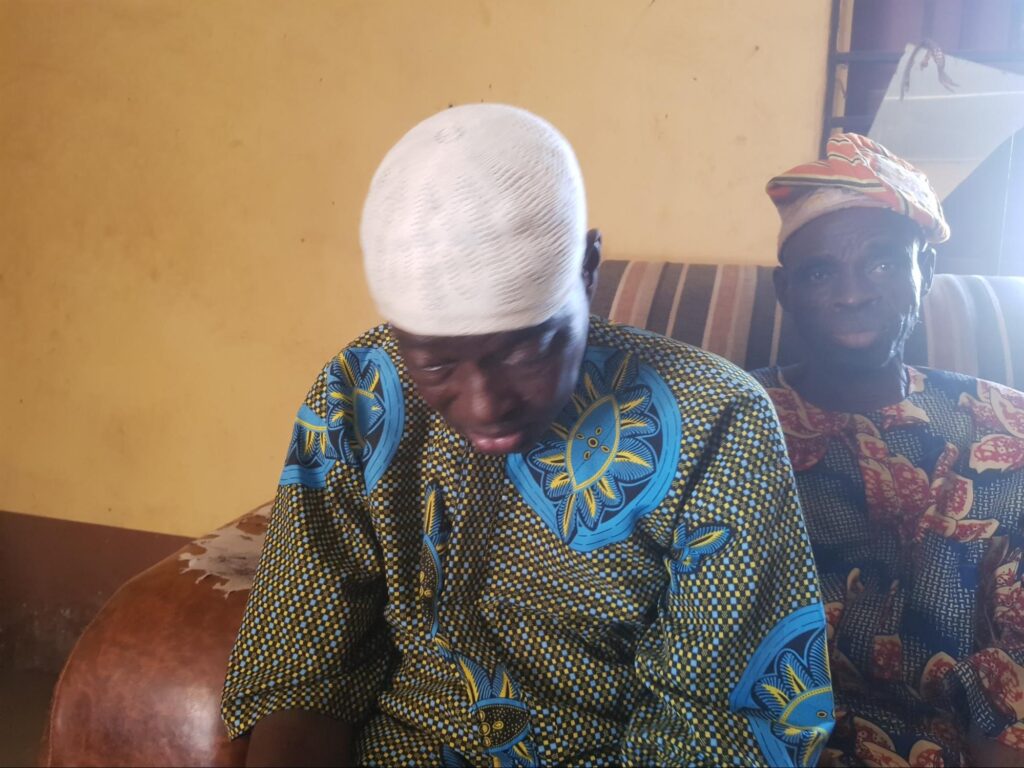
When contacted, Adebayo Adekele, ex-commissioner for chieftaincy affairs, who supervised the controversial processes, refused to speak on the matter. “I cannot speak on that because I no longer have the authority,” he said.
Kangaroo appointment?
Many indigenes and the head of kingmakers allege that the appointment of Akadiri was illegal and that the rites expected of the new Akirun were not done.
“We are seven kingmakers and all decisions should be made at the palace or my house. This was not the case when Akadiri was to be appointed a monarch. In fact, it was on the day of his selection that I got to know,” said the president of the kingmakers.
“I only got a notice for a meeting from the local government and when I got there, I met a lot of policemen and thugs at the place. I had no choice but to take part in the selection of Akadiri because my life was at stake,” said Kareem.
The appointment did not sit well with the community. They protested at various parts of Ikirun town, emphasising that the chieftaincy declaration law that stipulates how the stool should alternate among the ruling houses.
Protests
To express their displeasure, members of the Gboleru ruling house, on Nov. 23, 2021, took their protest to the Osun State Government Secretariat in Osogbo.
They urged the government not to discard the rotational order as contained in the Akinrun chieftaincy declaration, insisting that it was their turn to produce the next monarch.
“It is offensive to Ikirun culture to have a king appointed in the manner in which Akadiri was selected,” one of the protesters told us.
Despite the outcry, former governor Gboyega Oyetola, on Oct. 26, approved Akadiri’s appointment as ruler.
The development triggered another protest as aggrieved locals set up bonfires at the popular Oja-Oba/Palace Market road. They also frustrated the attempt by the new monarch to access the palace by placing a charm on the entrance.
The staff of office of a widely accepted monarch is usually issued by the state governor at the town that hosts the seat of the title. Akadiri got his at government house, Osogbo.
On Nov. 23, 2022 when violence erupted when the king attempted to access the locked palace, Lukmon was killed, and the palace was then set ablaze by an angry mob.
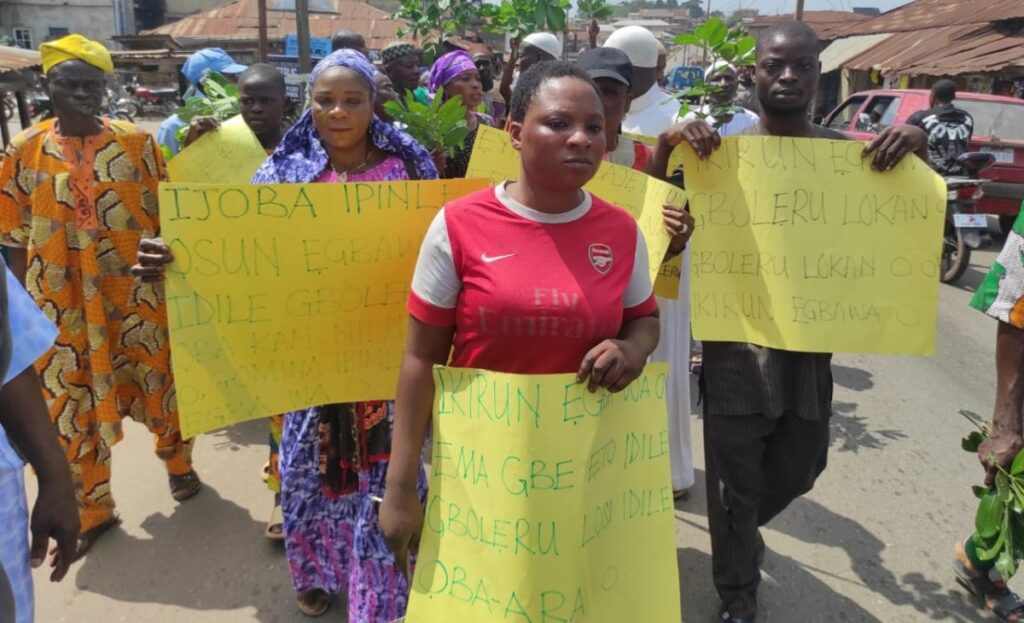
The bloodshed
Though it was not clear who fired the shot at Lukmon, the incident occurred when some youths stopped the hoodlums who wanted to forcefully open the palace. “He was killed for defending the interest of his family,” said Mudasiru Olatunji. The deceased, who had a wife and four children, was buried at his uncompleted apartment.
On hearing the news of his death, his wife Fatima Olatunji, collapsed in shock. A month later she also died. The orphans are now in the custody of their relatives.
Aisha Olatunji, the deceased’s mother, told HumAngle she’s also yet to recover from the death of her son.
Narrating his ordeal, Hassan Abdullahi, a gunshot survivor, said he was returning from his fashion designing workshop when he was attacked by hoodlums who allegedly escorted Akadiri to the palace.
“As I was returning from my shop. I was hit by a stray bullet in the chest. When I tried running, I was shot again on my side. I was rushed to Osogbo where I spent over a month in the hospital. My relatives spent over ₦2 million to keep me alive.”
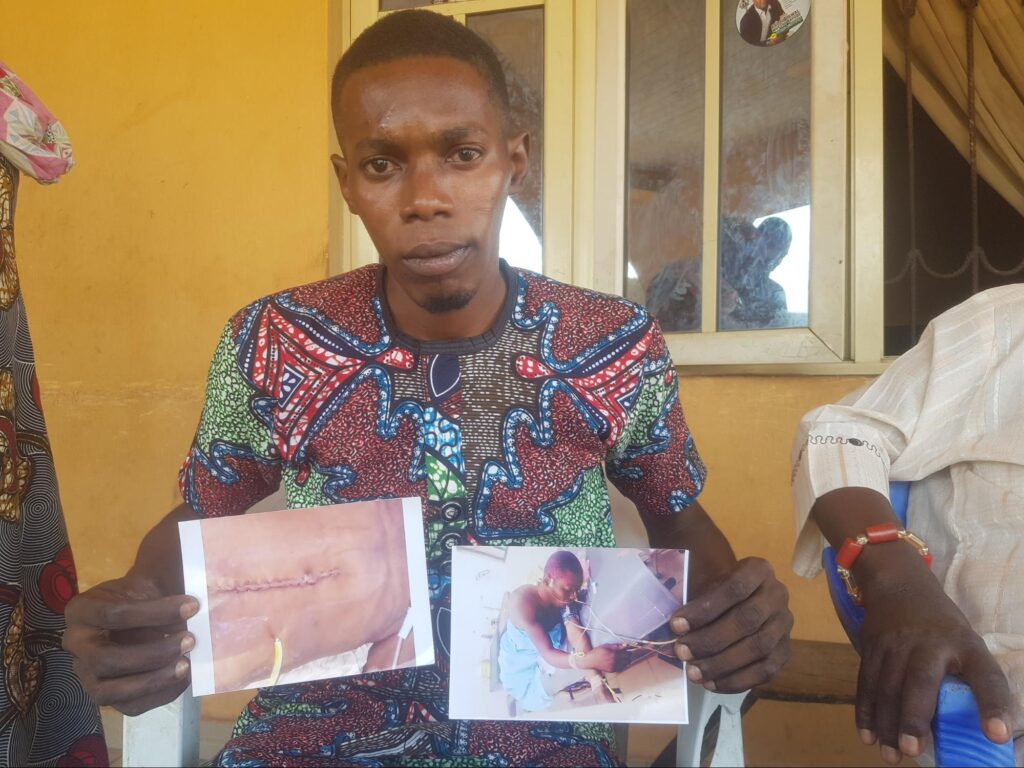
Another witness, Taibat Hassan, confirmed many people sustained gunshot injuries. “In fact, they killed someone beside my shop,” she said. “They brought hoodlums and fake police officers. They would have killed me if not for God.”
Akadiri did not respond to several calls for comment. He also did not respond to texts asking for clarification about the extent of his involvement in the violence.
Kingmakers who spoke with HumAngle also said efforts to speak with Akadiri to resolve the matter amicably have been unsuccessful. They alleged that the controversial monarch insists he will only speak after a review of the appointment is concluded by the state government.
Like Ikirun, two other communities in Osun – Iree and Igbajo – are also currently enmeshed in violent tussles over the throne.
In a bid to stop the destruction of properties, Ademola Adeleke, who was sworn in as Osun governor on Nov. 27, ordered that all appointments of traditional rulers made by the immediate past administration be put on hold. He promised to investigate if the appointments complied with the chieftaincy declaration and native laws.
Speaking with HumAngle, Bamimore Ibidapo, a researcher of Yoruba culture and tradition, warned the government against undue involvement in the selection of kings, as imposition often provokes conflict.
“Governments are supposed to be impartial and always respect chieftaincy declaration law of all communities during the selection process of a new king,” he noted.
“In cases of violence, authorities must ensure that police arrest and prosecute perpetrators. While it is difficult to satisfy all parties, politicians should ensure that they are not promoting candidates because they want to further their selfish political agenda in communities.”
Support Our Journalism
There are millions of ordinary people affected by conflict in Africa whose stories are missing in the mainstream media. HumAngle is determined to tell those challenging and under-reported stories, hoping that the people impacted by these conflicts will find the safety and security they deserve.
To ensure that we continue to provide public service coverage, we have a small favour to ask you. We want you to be part of our journalistic endeavour by contributing a token to us.
Your donation will further promote a robust, free, and independent media.
Donate HereStay Closer To The Stories That Matter




